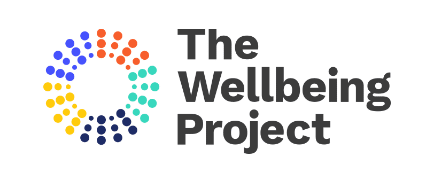20 January 2025
From Emerging Talent to Resilient Leaders: How HR Can Cultivate Gen Z Potential
Gen Z is entering the workforce at a turbulent time. To ensure they deliver their full potential, HR plays a vital role in fostering the cognitive and emotional skills necessary for long-term growth and adaptability.
Gen Z is entering the workforce at a time of rapid technological change and global uncertainty. To succeed in this turbulent environment, they are going to need high levels of resilience and adaptability. But our research highlights a worrying trend. The psychological resilience of Gen Z is less well-developed than their senior colleagues. Specifically, their self-belief and motivation are markedly lower.
To help Gen Z overcome these barriers and grow into the resilient, future-ready leaders organisations need, we must proactively foster the essential cognitive and emotional skills they need for long-term success. In this article we highlight these skills and outline the role HR teams play in ensuring Gen Z are equipped to thrive.
Future Ready Skills
These future-proof workplace skills go beyond technical know-how; they encompass critical cognitive and emotional abilities that not only help navigate complexity but also foster resilience.
Adaptive thinking is the ability to pivot quickly and effectively in response to shifting circumstances, whether that’s market trends, emerging technologies or unexpected internal challenges. Our research shows that the ability of Gen Z to think flexibly is 9% lower than their more experienced colleagues. Developing this crucial skill is essential if they are to succeed.
Emotional regulation is the ability to manage and respond to emotional triggers in a constructive way. With lower psychological resilience, Gen Z may be more at risk of unhealthy stress. Effective emotional regulation will not only help prevent burnout but also supports productive collaboration and effective decision-making.
The skill to evaluate options rapidly and choose the best course of action—even in high-pressure situations – is more important than ever. But when confidence is low and uncertainty is high, making decisions becomes increasingly difficult. By developing this crucial skill, Gen Z will be better placed to take the kind of decisive action that team success depends upon.
Empathetic communication is the practice of genuinely understanding another person’s perspective and tailoring communication to resonate with them. In diverse workplaces the capacity to understand and adapt to different perspectives is crucial for establish trust and ensuring effective collaboration.
Change readiness is the proactive embrace of transformation. Rapid shifts in technology, markets and organisational structures require near constant adaptation. Mastering this crucial skill early on reduces anxiety around the unknown and builds confidence to manage whatever comes your way.
Knowing how to create trust-based connections and networks of support is essential for navigating the ups and downs of working life.
Build the Resilience of Your Emerging Talent
Our unique programme equips graduates, apprentices and new starters with the mindset, behaviour and skills for sustained, healthy performance.
Equipping Gen Z to Thrive: The Strategic Role of HR
Gen Z’s relatively lower levels of self-belief make them more vulnerable to stress and self-doubt. HR leaders can prioritise a workplace culture where questions, feedback and even failures are treated as learning opportunities. This involves training managers to create a psychologically safe team environment and ensuring performance discussions focus on growth, not just outcomes.
HR plays a critical role in translating organisational needs into relevant development opportunities. Gen Z often responds best to learning in short, interactive formats—like short workshops or innovation challenges. Whether the focus is adaptive thinking, emotional regulation or decision-making under pressure, HR can design experiences that allow employees to practice these skills in realistic (yet low-risk) environments.
Because Gen Z has grown up in an era of intense societal uncertainties, emotional wellbeing support is more essential than ever. Beyond offering traditional Employee Assistance Programs (EAPs), HR can champion resilience development and peer-support networks that normalise proactive self-care.
Collaboration is one of the most powerful ways to accelerate growth, especially for emerging talent. By organising cross-functional projects and rotations, HR can expose Gen Z to varied perspectives and challenges—ultimately sharpening their adaptability, decision-making and empathy skills.
Annual reviews are no longer enough for a generation that thrives on instant feedback. HR can advocate for ongoing performance conversations and structured coaching programs, ensuring Gen Z employees receive regular guidance and support. These real-time insights are critical in building self-efficacy and motivation—especially when delivered with a forward-looking focus on growth.
Constant change can be daunting, especially for those new to the workforce. HR leaders can take a proactive approach to developing the agility and mindset needed to navigate an evolving business landscape.
Conclusion
By shaping psychologically safe cultures, designing targeted learning opportunities and providing holistic support, HR teams become the architects of Gen Z’s workplace success. Investing in these emerging professionals—equipping them with the resilience, emotional regulation and adaptability they need—ultimately drives an organisation’s long-term sustainability and competitive edge.

Author Bio: Sandra Ordel is a Senior Business Psychologist specialising in workforce resilience and neuropsychology. She supports organisations worldwide to build resilient teams and cultures of healthy performance.
Our unique programme equips graduates, apprentices and new starters with the mindset, behaviour and skills for sustained, healthy performance.

Our unique programme equips graduates, apprentices and new starters with the mindset, behaviour and skills for sustained, healthy performance.








